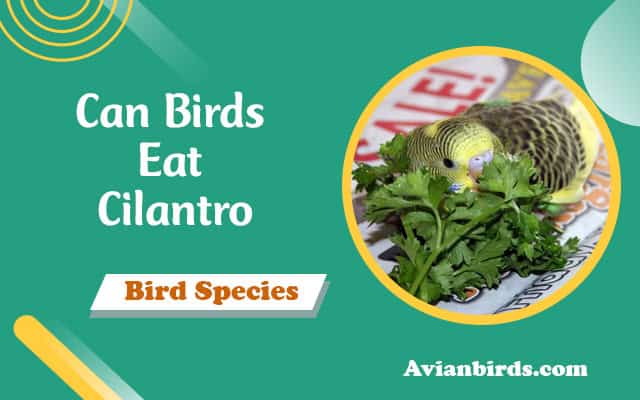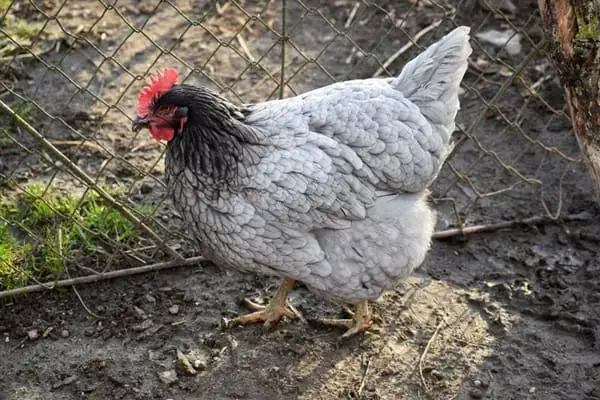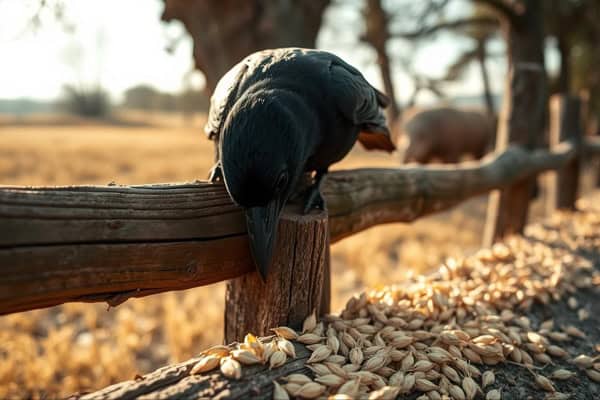Can Birds Eat Cilantro: Is It Good for Your Pet Bird?
Yes, birds can eat cilantro, making it a delightful addition to their diet. This aromatic herb is not only safe but also packed with nutrients that can benefit your pet bird’s health. Rich in vitamins A, C, and K, cilantro supports immune function and overall well-being.
Many birds enjoy the taste of fresh herbs like cilantro. You might find your feathered friend nibbling on it or even playing with the leaves. Introducing this flavorful herb can add variety to their meals while encouraging natural foraging behaviors.
Safe Herbs for Parrots
Parrots can benefit from a variety of safe herbs that add flavor and nutrition to their diet. Some popular options include cilantro, parsley, oregano, and rosemary. These herbs not only enhance the taste of your bird’s food but also provide essential vitamins and minerals.
When introducing herbs, it’s important to ensure they are free from pesticides or chemicals. Fresh organic herbs are ideal. Always wash them thoroughly before serving to keep your pet bird healthy while enjoying these flavorful additions to their meals.
Coriander
Coriander, often confused with cilantro, is a flavorful herb that can be beneficial for birds. It contains essential vitamins and minerals like vitamin C and potassium, which support overall health. Many pet owners find their feathered friends enjoy the taste of fresh coriander.
When introducing coriander to your bird’s diet, start with small amounts. Observe how they react to it. If your pet shows interest and doesn’t experience any adverse effects, you can incorporate it regularly in their meals as part of a varied diet rich in nutrients.
Oregano
Oregano is another herb that can be safely enjoyed by pet birds. This aromatic plant not only adds flavor to human dishes but also offers numerous health benefits for your feathered friends. Rich in antioxidants, oregano supports the immune system and helps combat harmful bacteria.
Adding fresh or dried oregano to your bird’s diet can stimulate their appetite. It’s best served in moderation alongside other herbs. Always ensure that it’s clean and free from pesticides before sharing with your pet bird.
Parsley
Parsley is a popular herb that many bird owners consider safe for their pets. It offers essential nutrients and can be a flavorful addition to your bird’s diet. Rich in vitamins A, C, and K, parsley supports overall health and boosts the immune system.
However, moderation is key since excessive consumption may lead to digestive issues. Fresh parsley can be chopped into small pieces or offered as whole sprigs for your bird to nibble on. Always ensure it’s pesticide-free before serving. Your feathered friend may appreciate this vibrant green treat!
Rosemary
Rosemary is a fragrant herb that offers several health benefits for your pet bird. It’s rich in antioxidants, which can help boost their immune system and improve overall well-being. The aromatic oils are not only appealing to birds but may also aid in digestion.
When introducing rosemary to your bird’s diet, ensure it is fresh and free from pesticides. You can offer small sprigs or finely chopped leaves mixed with other foods. Always observe how they respond to new foods to ensure they enjoy this flavorful addition.
The Benefits Of Herbs
Herbs offer a variety of health benefits for pet birds. They are packed with essential vitamins, minerals, and antioxidants that can boost your bird’s immune system. Incorporating herbs into their diet may also improve digestion and overall well-being.
Additionally, the natural flavors and aromas of herbs can stimulate your bird’s senses. This encourages exploration and keeps mealtime interesting. With so many options available, adding herbs to their diet is an easy way to enhance both nutrition and enrichment in your pet’s life.
Keep It Varied
Variety is key when it comes to feeding your pet bird. Just like us, birds thrive on a diverse diet that includes different flavors and textures. Offering an assortment of herbs, fruits, and vegetables can help keep mealtime exciting and encourage them to explore new tastes.
Integrating various herbs, such as cilantro alongside others like basil or mint, not only enhances their diet but also provides essential nutrients. This approach promotes healthy eating habits and prevents boredom in their meals. A varied menu keeps your feathered friend happy and engaged during feed times.
What Types of Herbs Are Safe for Parrots?
Many herbs are safe and beneficial for parrots, providing essential nutrients. Popular choices include basil, thyme, and dill. These herbs can enhance your bird’s diet while offering various flavors.
Other safe options include mint, chives, and fennel. Always ensure the herbs you provide are free from pesticides or chemicals. Freshness is key; organic herbs are often the best choice for keeping your feathered friend healthy and happy. Experiment with different types to discover what your parrot enjoys most.
Ways to Feed Kitchen Herbs to Your Parrots
Feeding kitchen herbs to your parrots can be both fun and beneficial. You can chop fresh herbs into small pieces and mix them with their regular food. This allows the flavors to blend, making mealtime exciting.
Another great method is to hang whole sprigs in their cage. Parrots love foraging, so they’ll enjoy picking at the leaves while also getting exercise. You can even create a herb bouquet by combining different types of safe herbs, stimulating their curiosity and encouraging exploration.
Can Baby Parrots Eat Kitchen Herbs?
Baby parrots can indeed eat kitchen herbs, but caution is essential. Young birds have developing digestive systems that may be sensitive to certain foods. It’s best to introduce herbs gradually and in small amounts.
Common safe options for baby parrots include cilantro, parsley, and basil. These herbs can provide important nutrients while adding variety to their diet. Always wash the herbs thoroughly to remove any pesticides or chemicals before feeding them to your baby parrot. Monitor your bird’s reaction after introducing new foods, ensuring they enjoy a healthy herb experience without adverse effects.
Final Thoughts
When considering whether birds can eat cilantro, it’s important to recognize that many herbs can be beneficial for your pet bird’s diet. Cilantro is safe in moderation and offers various health benefits such as antioxidants and vitamins. However, introducing any new food should be done gradually.
Remember to keep your parrot’s diet varied with a mix of different herbs like oregano, parsley, and rosemary. Each herb provides unique benefits that contribute to their overall well-being.
Always monitor how your bird reacts to new foods, especially if they are young or have never tried them before. By offering a diverse range of safe kitchen herbs, you can help ensure a balanced diet for your feathered friend while keeping mealtime interesting and enjoyable for both of you.
Frequently Asked Questions
Q1: Can pet birds safely eat cilantro?
Yes, cilantro is safe and non-toxic for most pet birds.
Q2: Is cilantro good for parrots?
Definitely—it’s rich in vitamins and antioxidants, making it a healthy treat.
Q3: What herbs can birds eat, including cilantro?
Safe herbs include basil, parsley, thyme, mint, and cilantro.
Q4: Do wild birds eat cilantro?
Wild birds may peck at cilantro but prefer seeds and fruits.
Q5: How much cilantro is safe for birds?
A small sprig or two is enough; moderation is key.
Q6: Are there benefits of cilantro for birds?
Yes, cilantro supports digestion and immunity and provides essential nutrients.
Q7: What herbs are toxic to birds?
Avoid feeding birds garlic, onion, and chives, which are harmful to them.
Q8: Can baby birds eat cilantro?
Yes, but introduce it in tiny amounts and monitor for any reactions.
Q9: How do you introduce cilantro to a bird’s diet?
Start by mixing chopped cilantro into their usual food to get them accustomed.
Q10: What are the health benefits of cilantro for birds?
Cilantro boosts immunity, supports digestion, and adds essential vitamins.
Read More🐦Related Articles:
- Will Birds Eat Unpopped Popcorn
- Do Birds Eat Hemp Seeds
- What Birds Eat Berries
- What Birds Eat Dried Mealworms
- Bananas for Birds
- Birds That Live in Norway
- Can Birds Eat Split Peas
- Can Birds Eat Raisins







